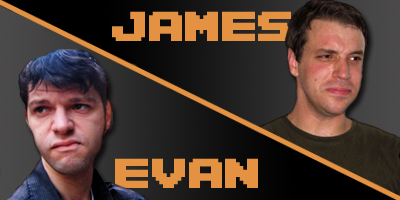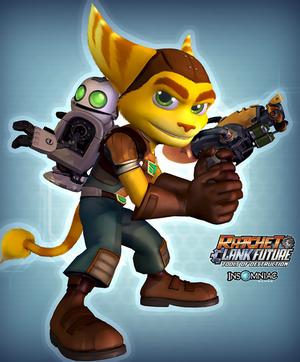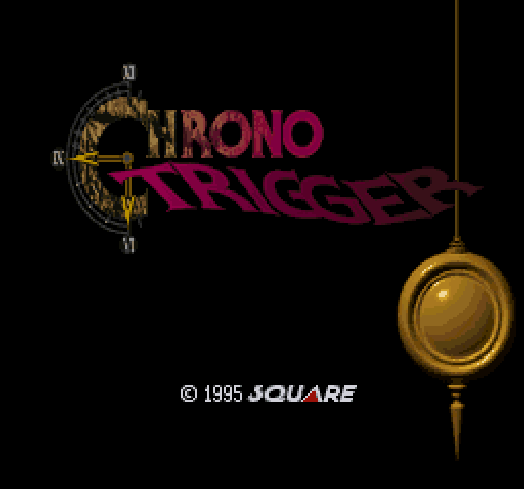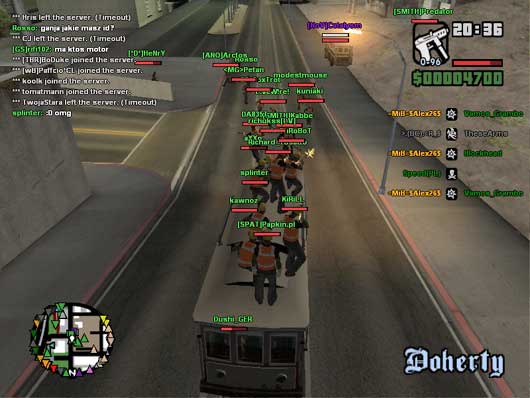This post has not been edited by the GamesBeat staff. Opinions by GamesBeat community writers do not necessarily reflect those of the staff.
Editor's note: The following is a fascinating conversation between Evan and James about the downward spiral that is compulsive gaming. I really enjoyed reading it and I think you will too. – Aaron
Bitmob Splitscreen is a one-on-one discussion conducted over e-mail on a single topic. For this, the second installment, Bitmob's resident music archivist James DeRosa and I sat down (at our computers) to discuss our experiences with compulsive gaming. What follows is an epic tale of Candle Envy, list-making, and active hatred.

James DeRosa: I used to be a severely afflicted compulsive gamer. I think a lot of that stemmed out of my background as an avid fan of the Zelda series since its earliest entries. Sorry to start with Zelda again.
The Legend of Zelda was one of the first games I played that had a battery-backed save feature. Unlike previous games in the NES's life cycle, The Legend of Zelda allowed me to leave it behind, come back at my leisure, and pick up right where I left off. I think this is one of the most underappreciated revelations in console gaming. Coupled with Zelda's station as a prototype for the open world genre, I think the game was bound to addict someone as prone to collecting things or obsessively organizing things as I am.
In Zelda, you get maps for each dungeon, and in many of them, you don't necessarily have to go to every room. I'm sure many people didn't find this irksome, but I had to see every room in every dungeon. As I played, I began to see the dungeons as these odd sorts of oubliettes. Sure, there was the one way out at the end, but I wanted make sure I saw every nook and cranny of the environment before I made my escape.
The funny thing is, Zelda has no unique, secret items that you can miss in any of the dungeons. Tearing them apart like an FBI agent at a mobster's house in a movie wasn't going to get me any evidence that would break the case. I was just doing it because if I didn't, there would be this sort of anxious feeling of incompleteness hanging over me. For me, the comfort came when everything was discovered and I could move onto the next area. When you really get down to the nitty-gritty, The Legend of Zelda is one of the most astonishing examples of game design ever created for this very reason.
I would bomb or rub against the center of every wall, and in the Overworld, I would go screen by screen burning every bush with that damn Blue Candle or pushing every gravestone. Man was I fucking pissed when I found out there was a Red Candle later in the game that you could use multiple times in the same screen.
Zelda was definitely my first experience with compulsive gaming.

Evan Killham: The battery-backed save was a blessing and a curse. On one hand, you could play through games at your own pace without having to leave your system on while you were at school or, worse yet, overnight. But it also meant that games could have that sort of "please take your time to look around" attitude, which, yes, led to my having to occasionally break out the graph paper to mark which segments of Death Mountain I hadn't bombed.
And of course it didn't stop with the first game. I remember spending hours with a handwritten checklist in my lap, going to every dungeon and every island in The Wind Waker and taking pictures of everything that moved, and then going back and forth to the museum to have statues made.
There was absolutely nothing in this for me but the statues themselves, but I was still pretty pissed when I found out that I'd missed taking a photo of one of the early bosses, which meant that there was no way I was going to finish that particular project on this playthrough. Luckily I stopped myself from starting over, but I never went back to the museum after that. That empty pedestal mocked me.
Did your compulsion carry over to the other Zelda games?
JD: To some degree it did, yes. I feel over the years the amount of extra things to do in games has opened up to a point where it was becoming a headache. I think we're only now starting to see some developers pull back from this oversaturation concept.
In A Link to the Past and Link's Awakening, I did everything there was to do. I got all of the heart container pieces, maxed out my arrows and bombs, and got all the extra power-ups. Then came Ocarina of Time; I have to say, I barely finished that game, and it's probably my least favorite entry into the series. I never really played Majora's Mask even though I own it. It still exists to me as a weird curio in the Zelda franchise, like The Adventures of Link.
This is a long way of saying that by the time Wind Waker came out, I had sort of become deprogrammed with regard to being a perfectionist in Zelda games. I love Wind Waker; it's my favorite 3D Zelda game, but I didn't do everything in it. I didn't do the camera side quest, I didn't talk to every Fish Man, and I definitely didn't hook my GBA up to the damn thing.
EK: I'm sorry to say that I did hook up my GBA, and mediocrity awaited me.
 One way that the Zelda games encourage this kind of exploration is by always having something waiting for you when you discovered a new area, even if it was a Giant Rupee you couldn't actually carry because you'd already maxed out your Giant's Wallet. But in some games the rewards weren't as good, like the Skill Points in the Ratchet & Clank games.
One way that the Zelda games encourage this kind of exploration is by always having something waiting for you when you discovered a new area, even if it was a Giant Rupee you couldn't actually carry because you'd already maxed out your Giant's Wallet. But in some games the rewards weren't as good, like the Skill Points in the Ratchet & Clank games.
They're like little "riddles" that correspond to particular tasks in the game world, and unlocking a certain number of them could get you extra player skins or concept art. These were fun, sure, but they didn't actually help you with the game, unless that Snowman skin somehow did damage beyond what I could dial (I checked, actually. It didn't).
I have felt compelled to get all of the skill points in every Ratchet & Clank game I've played, but I don't think I've ever looked at the concept art, or spent longer than ten seconds running around looking like a Bug Alien. The completed checklist was all the reward I needed, even though it was absolutely meaningless.
JD: I've never actually played a Ratchet & Clank game. At that time, I was obsessed with the Sly Cooper games. Those games had similar vibe I think, but the one thing about Sly is that the levels were very linear. It was more like the original 2D Marios in design or Super Mario Galaxy, as opposed to Super Mario 64, or, by extension, the Banjo Kazooie games. Ratchet always seemed to be more of the latter. I have to ask, did you get all the Gobbos in Croc: Legend of the Gobbos? That game, even over Banjo, was just a collect-a-thon.
Like I said, I'm a very organized person. The computer I'm typing this on only has four icons in its desktop. Because of this, I've always been prone to itemizing my favorites like John Cusack's character in High Fidelity, and to anyone who would like to know, my three favorite games — tied for first place — are: Mega Man 2, Chrono Trigger, and Castlevania: Symphony of the Night.
Two of these games stick out like sore thumbs with regard to how germane they are to this topic. Castlevania: Symphony of the Night, for me, is the paragon of how collecting should work in games that choose to implement such a feature. Every nook of the two castles is chock full of fun, useful things to do. CSotN sticks out to me as a perfect coalescence of playing on many gamers' compulsive natures, while still making the total amount of content manageable and undaunting. I have two save files of that game: one saved at 200.6%, the total amount of map in both castles, and one saved at 210%, which I got using the Sword Familiar/Bat Form glitch.

Chrono Trigger took a different route with its innovative New Game Plus feature — something you see in many RPGs today. This was a really clever design decision on the part of the creators because it let players define what their own definition of "completion" was for the game. You could play it once and quit, you could try to get all the endings, or, if you're like me, you could get everyone's stats to double-star (the game's stat max indicator). I loved Chrono Trigger because it was a game were you reaped palpable benefits by being a compulsive gamer.
EK: I'd classify the Ratchet games as having "light to moderate" collecting, and they're a whole lot more open than the Sly games. There are the Skill Points, of course, but there are also Gold/Platinum Bolts that (in most cases) let you upgrade your weapons for the second playthrough. So they're this weird combination of positive- and neutral-reinforcement games.
I've never played Croc, but I did play Spyro the Dragon to completion a couple times, and I found all three hundred flags in Assassin's Creed. Incidentally, those flags don't get you anything but Achievements.
We probably wouldn't be doing this topic justice if we didn't talk about Achievements…in a lot of ways the Achievement system serves to quantify compulsion, and I have to admit that they often cause me play games for longer than I would have, or in different ways than I would have if there had been no *ding* involved. Just the other night, in fact, I replayed the first 30-45 minutes of Borderlands three times to get the Action Skill Achievements for each character.
The upside of this is that I often get a lot more out of games than if I had just played through them and moved on. The downside is that in some cases the Achievements become the point of playing; I once spent maybe ten minutes in Borderlands having a Jump Fight with a Skag, which managed to be just not-boring enough that I kept it up until the "My Brother is an Italian Plumber" Achievement unlocked.
I'd say that Achievements and Trophies often serve as ways to attach some reward where there wasn't one before. Like if the first Zelda was released today (on a non-Nintendo console), there would probably be an Achievement or Trophy for going into every room in every dungeon. Have you noticed that these reward systems feed into your compulsive tendencies in any way?
JD: Absolutely not. I think that I'm uncharacteristic of most game players in that I've disabled Achievement notifications on my XBox. In fact I did it immediately after unwrapping and hooking it up. And this ties into the last point I wanted to make, and why I stopped being a compulsive gamer.
A little game called Grand Theft Auto: San Andreas.

I was unable to finish this game because I was so distracted by the swamp of things to do. In the canon of the modern GTA games, San Andreas is a goddamn mire. If you've ever seen or read The Neverending Story, San Andreas is basically the Swamp of Sadness of video games. Every little mission you do in that game is like stepping in deeper and deeper into an endless mud; it just keeps sucking your boots downward harder and harder. For me, there came a point where I just gave up. It's the moment when Artax dies in The Neverending Story, and it was the moment where I stopped being a compulsive gamer.
I never finished GTA: San Andreas through no fault of my own, but rather, because the game itself had no direction. Achievements and Trophies only serve to exacerbate what I felt while playing San Andreas. If that game came out nowadays with those features, I would have switched it off in the first five minutes.
San Andreas broke me. My gameplay style these days is sloppy and self-indulgent. I actively hate Achievements; they are a tool actively used by developers to obfuscate the player as to the actual content of their games, and they only artificially extend the value proposition of the product.
Nowadays, I don't try to "get everything." I just play the game how I want to play. If that occasionally means "getting everything," then so be it. But, most of the time, I play how I want to play…compulsion be damned.
Thanks to James for his time — and for making me suspect for a moment that my relentless pursuit of Achievements might be a bad thing. But I'm over it now, really.
